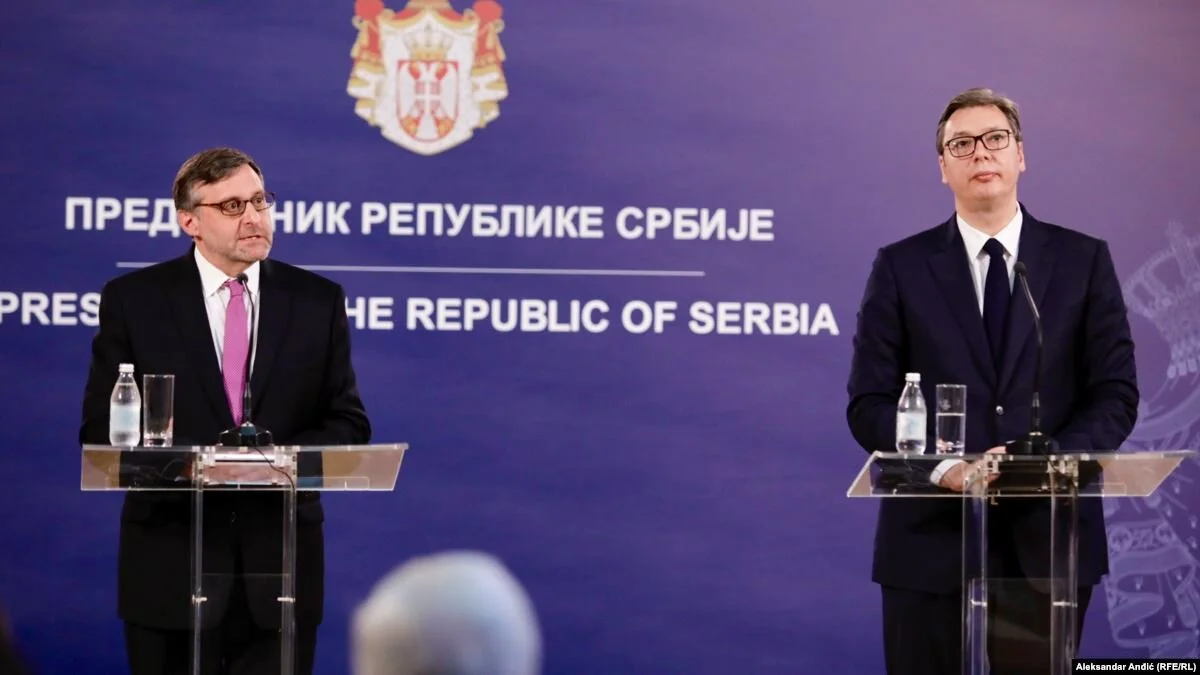Serbia and Kosovo Unlikely to Reach Normalization Agreement by 2020
Background
Serbia and Kosovo are unlikely to reach a comprehensive normalization agreement before January 2020. Despite EU pressure, relations between Serbia and Kosovo remains extremely tense and both parties have demonstrated a reluctance to compromise to repair the relationship between the two countries. In 2008, the Assembly of Kosovo unilaterally declared independence from Serbia. Serbia immediately denounced the declaration and continues to deny Kosovo independence. [i] 112 countries including the United States recognize Kosovo. Serbia and Kosovo are both pursuing EU membership however the EU insists that Serbia must normalize relations with Kosovo before joining. [ii] Despite a series of EU-mediated talks, Belgrade and Pristina remain entrenched in their positions—Serbia claims Kosovo is a Serbian territory and Kosovo maintains it is an independent state. In addition, polls indicate citizens from both countries are reluctant to negotiate. [iii] Furthermore, normalization talks have stalled due to a series of recent conflicts such as the murder of an ethnic-Serb Kosovar politician, the “train incident”, aggressive implementation of tariffs, and Kosovo’s military upgrade.
Analysis
Serbia-Kosovo relations remain tense and progress towards normalization is currently at a standstill. The EU plays a critical role in normalizing relations between Belgrade and Pristina. Serbia and Kosovo aspire to EU membership, however EU backed negotiations have stalled. Both sides remain entrenched in their positions concerning Kosovo’s independence. In addition, a series of confrontations since 2015 have further impeded Serbia-Kosovo normalization progress.
Serbia and Kosovo are both pursuing EU membership. Serbia has been a member candidate since 2012 and Kosovo is a potential candidate. The EU insists that Serbia must normalize relations with Kosovo before joining. EU-backed negotiations to normalize relations between the two countries have been stalled for almost a year indicating domestic political pressure outweighs the incentives of EU membership. In 2008, only 29 percent of Serbians favored EU membership—less than in any other Western Balkan country— and 81 percent oppose recognizing Kosovo's independence. Polls indicate only 21 percent of Serbs support an agreement with Pristina and 63 percent view a frozen conflict as the best possible outcome. In contrast, polls from 2018 suggest that 84 percent of Kosovars support EU membership but do not believe talks with Serbia will produce any substantial benefits. Fifty-two percent of Kosovo’s population are in favor of suspending talks with Belgrade regardless of the international consequences. [iv, v]
Since 2011, the EU has held a series of talks between Serbia and Kosovo designed to achieve comprehensive normalization between the two states but has failed to achieve substantial results due to open hostility between the governments and an unwillingness to negotiate. The 2013 Brussels Agreement (formally the First Agreement of Principles Governing the Normalization of Relations) to improve relations between Serbia and Kosovo was negotiated and concluded. While the Brussels Agreement facilitated promising dialogue, neither Pristina nor Belgrade signed, nor did the agreement achieve significant normalization in areas such as trade, energy supplies, or cross-border travel. [vi] In 2018, Vucic refused to meet with Thaci at a meeting scheduled in Brussels. Two months later the two leaders met at an EU-mediated meeting. The meeting ended with the two sides remaining entrenched in their positions, and without progress towards an agreement on the normalization of relations. [vii] Thaci said that Serbia must accept that Kosovo is an independent state, and that there can be no compromise on that matter. Vucic said, “The only ‘compromise’ that the Kosovo side is offering … is to recognize the independent state of Kosovo. It doesn’t work that way.” Vucic announced afterwards that there would be no further dialogue until Kosovo lifted its 100 percent duty tax on Serbian imports. [viii]
Serbia and Kosovo have made little progress on reaching new normalization agreements or on implementing the ones previously concluded due to a series of confrontations which further deteriorated Serbia-Kosovo relations. In 2017, a Serbian train with the words 'Kosovo is Serbia' in 21 languages painted on headed to North Kosovo sparked outrage in Kosovo. [ix] In 2018, Oliver Ivanovic, an ethnic-Serb politician in northern Kosovo was murdered. Vucic called the killing "an act of terrorism". The killing increased tension between Kosovo and Serbia, and led to Belgrade’s suspension of an upcoming EU-sponsored dialogue on normalizing relations. Also in 2018, Kosovo imposed an aggressive 100 percent tariff on Serbian imports after Belgrade blocked Kosovo's bid to join Interpol—a move which Serbia calls "senseless and unreasonable”. [x] In addition to this, Kosovo upgraded its security force into a full-fledged 5,000 troop army, which Serbia calls a direct threat to peace and stability that could trigger a military response from Belgrade. [xi]
Outlook
Serbia and Kosovo will unlikely reach a comprehensive normalization agreement before 1 January 2020. Serbia-Kosovo relations are extremely tense and there has been little effort from officials on either side to repair the relationship between the two countries. Because of this, relations between Belgrade and Pristina will not change from the status quo. EU membership is the key incentive for Serbia and Kosovo to reach a comprehensive normalization agreement. Belgrade and Pristina have both expressed a desire to join the EU, which the EU will not allow until Serbia-Kosovo relations are normalized. Despite EU pressure, Kosovo is very unlikely to agree to be part of Serbia, which means that in order to gain EU accession, Serbia must formally recognize Kosovo, and Serbia is unlikely to formally recognize Kosovo before 2020.






